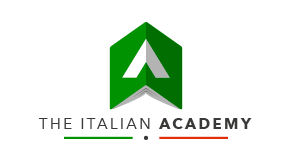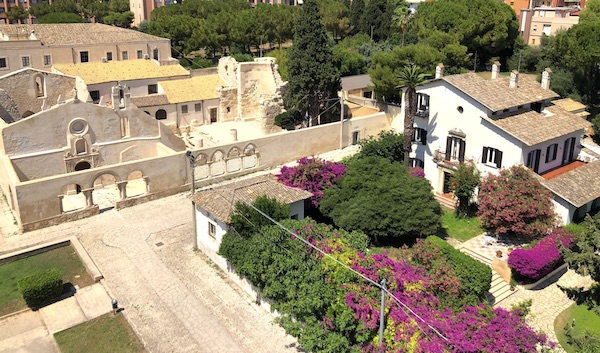Frequently Asked Questions
if you cannot find your question send it to us
The weather is warm and sunny throughout the year, with summer temperatures averaging 25°C-30°C (76°F-86°F) and average winter temperatures of 14°C (57°C). Being located at the southern tip of Italy and right in the middle of the Mediterranean sea, the city of Siracusa enjoys one of the most pleasant climates in Europe.
Italy is on the Central European Time (CET). 1 hour ahead of GMT (London), 6 hours ahead of New York, 2 hours behind Moscow and 8 hours behind Tokyo.
Most shops are open between 9:00-13:00 and 16:00-20:00. Shopping malls are open 9 a.m. to 9 p.m. every day, except Monday morning. Banks are open 8:30-13.00 and 15:00-16:00, Monday to Friday.
The First Aid service (Pronto Soccorso) at the Umberto I hospital is free for anyone in need of immediate attention.
A list of useful numbers can be found here: http://www.paginebianche.it/numeri-utili?l=en
One can always find an open pharmacy in the city at any hour of day and night (24/7), timetables are clearly displayed on a board outside each pharmacy, or here: http://www.comune.siracusa.it/index.php/en/farmacie
The level of Italian fluency achieved through our courses depends on the initial level of each student and the amount of time spent with us. Being based on the communicative method, the “gold standard of language teaching”, classes are taught in Italian and students at all levels are encouraged to interact in Italian right from the first lesson. We ensure that each student achieves our weekly language acquisition targets by closely monitoring progress and focusing on meeting the personal needs of all students.
All our courses run throughout the year; the programme of excursions and activities varies depending on the season, with specifically chosen summer and winter activities.
Yes, we have courses at all levels starting every Monday when, after initial testing, students are allocated to their appropriate group.
Students’ progress is closely monitored thoughout their stay; teachers give daily feedback to our Director of Studies and present a written report on each student weekly. Regular progress tests are used in order to check progress and highlight areas which may be in need of improvement. Acquiring confidence is key to success in language learning and regular assessment is a useful tool so that students can realize how much their language competence is improving.
To study at the right level is essential to ensure language development and rapid progress. Testing and assessment is carried out on the first Monday morning after students’ arrival. All new students will sit a written test to assess their knowledge of vocabulary and grammar and their ability to understand written Italian, followed by a brief oral interview to assess their commncative abilty.
Our courses are based on the communicative approach to language teaching. The four language skills: speaking, listening, writing and reading are practised in the lessons with emphasis placed on the development of interactive communication.
The Italian Academy is a centre for CILS (Certificazione di Italiano come lingua Straniera – Certification of Italian as a foreign language) and DITALS (Certificazione di Competenza in Didattica dell’Italiano a Stranieri – Certification of Italian language teaching to foreigners ) of the University of Siena . Our long-term students who wish to follow specific examination courses may prepare and sit CILS examinations at levels from A1 to C2 of the CEFR. Students who have a C1 certified level of Italian can prepare and take the DITALS 1 examination which includes a 24 hour specific teacher training course and 60 hours of classroom teaching practice.
For updated information on Visa requirements for Italy, you can visit the Italian Ministry of Foreign Affairs website or contact your local Italian embassy.
The following rules generally apply:
– EU Citizens do not require a student visa for Italy.
– Non-European Union Citizens studying in Italy for a period of less than 90 days are not required to apply for a Student Visa if their country belongs to the Visa-waiver program (US, Canada, Australia, New Zealand, etc.): click here for full list.
Students from EU countries are entitled to free medical care in Italy if they have a European Health Insurance Card which will ensure access to state provided health care. They should apply for a EHIC to the local health authority in their home country before coming to Italy.
Students from non-EU countries should enquire with the authorities in their countries to find out if they are insured during a stay abroad for study purposes; if they are not covered,it is advisable to arrange health insurance.
If you wish to avail of a travel insurance, we recommend you follow the link to compare different Travel Insurance providers and find the option that better suits your needs.
Check you have a valid ID card (if you are an EU citizen) or Passport (expiry date should be at least 6 months later than the date on which you plan to book your return flight), Visa (if required, more information here) and Medical Insurance (if you wish to be covered during your stay, more information here).
The nearest airports are Catania and Comiso. Bus transport is available to/from Siracusa from both airports. We also offer pick-up service, which should be requested as an extra service during booking process.
We recommend using SkyScanner to compare and book flights.
– Adapter plug (Italy uses the 220volts/AC system and the standard European 2 pin plug)
– Credit Card, some cash (when changing to the local currency (Euro €), the exchange rate is less advantageous at the airport, so it is advised to do so in advance)
– Trekking shoes (if you wish to go walking on Mt. Etna)
– Beachwear and Sunscreen!













